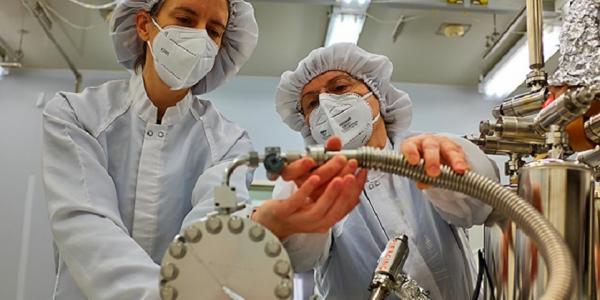Physics Colloquium with Olga Pravdivtseva on Early Solar System Evolution
A wealth of fundamental information regarding the solar system is based upon isotopic analyses of the highly volatile He, Ne, Ar, Kr and Xe. Increasingly sophisticated analytical techniques have provided the means for precisely measuring their abundances and isotopic compositions. Age constraints on early solar system processes and events can be derived from meteorites and their components using different radioisotope systems. Due to the short time interval from the formation of first solids in the solar nebula to the accretion and differentiation of planetesimals and some planets, a high temporal resolution of the chronometers is essential and can be obtained in most cases only with short-lived isotope systems. I will discuss the current status of the I-Xe chronometer based upon decay of now-extinct 129I.A wealth of fundamental information regarding the solar system is based upon isotopic analyses of the highly volatile He, Ne, Ar, Kr and Xe. Increasingly sophisticated analytical techniques have provided the means for precisely measuring their abundances and isotopic compositions. Age constraints on early solar system processes and events can be derived from meteorites and their components using different radioisotope systems. Due to the short time interval from the formation of first solids in the solar nebula to the accretion and differentiation of planetesimals and some planets, a high temporal resolution of the chronometers is essential and can be obtained in most cases only with short-lived isotope systems. I will discuss the current status of the I-Xe chronometer based upon decay of now-extinct 129I.

